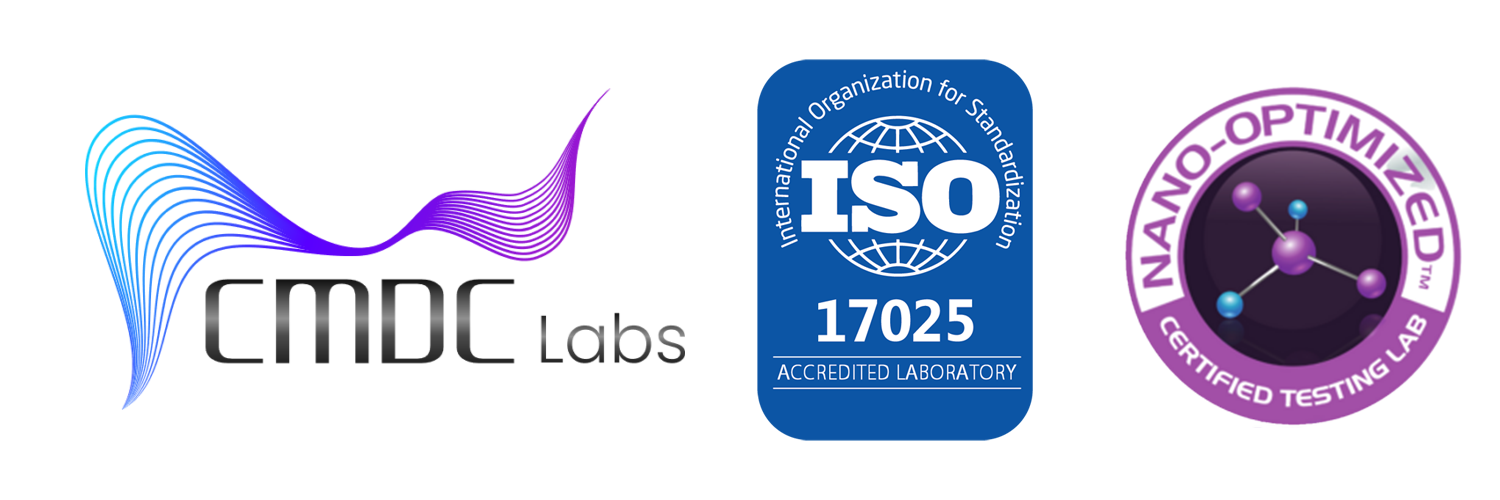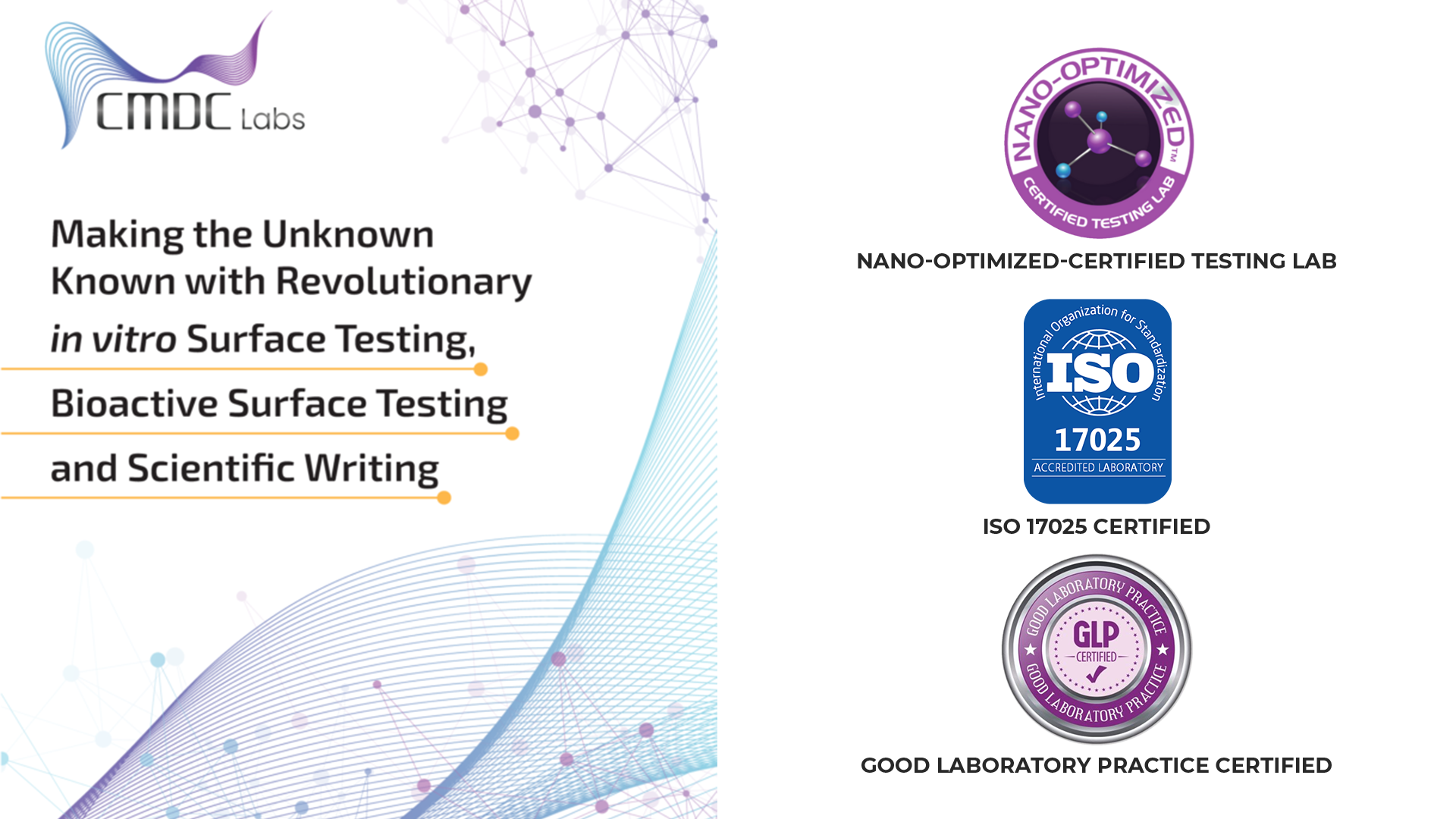The medical device industry thrives on global collaboration. Components may be designed in Germany, molded in Malaysia, sterilized in the U.S., and assembled in Mexico — each link in the chain contributing to patient safety and product reliability. But in 2025, this balance faces fresh tension as the U.S. government invokes Section 232 investigations into imports of medical devices, personal protective equipment (PPE), and related materials, citing national security concerns.
While the investigation primarily targets countries such as China and India, its ripple effects extend across nearly every segment of the healthcare supply chain — from raw polymer sourcing to finished device assembly.
For companies that depend on complex, international networks, the question becomes urgent: How can product quality, sterility, and compliance be assured when trade policy reshuffles the deck?
At CMDC Labs, based in Longmont, Colorado, we believe the answer lies in testing — not just as a checkpoint, but as a strategy for continuity. As tariffs and regulations shift, reliable laboratory validation becomes the foundation for both regulatory compliance and supply chain resilience.
Section 232: What It Means for the Medical Device Sector
Section 232 of the Trade Expansion Act of 1962 authorizes the U.S. Department of Commerce to investigate whether imports threaten national security. Although originally intended for defense-critical goods like steel and aluminum, its scope has widened in recent years to include critical medical technologies — a lesson underscored by the COVID-19 pandemic’s PPE shortages.
In mid-2025, the Department of Commerce and the U.S. Trade Representative (USTR) launched a formal review into the dependency of U.S. healthcare infrastructure on imported medical devices, equipment, and consumables.
The investigation’s stated goals include:
- Reducing dependency on foreign-manufactured medical supplies.
- Encouraging domestic manufacturing through tariff adjustments.
- Ensuring that imported products meet FDA and national security standards.
However, for device manufacturers, distributors, and testing laboratories, this investigation raises operational challenges — from cost escalations and sourcing delays to increased scrutiny of product validation data.
Tariffs and Testing: An Overlooked Link
When tariffs disrupt supply chains, companies often pivot to new suppliers or materials. But with new sources come new risks:
- Different resin grades in injection-molded components may alter biocompatibility.
- Alternative sterilization vendors may use ethylene oxide (EtO) or gamma processes that must be revalidated.
- Substituted elastomers or adhesives can affect extractables and leachables profiles, potentially jeopardizing patient safety.
In other words, every sourcing change — even a small one — requires scientific verification. Tariffs don’t just raise prices; they trigger waves of revalidation testing across the industry.
That’s where laboratories like CMDC Labs play a pivotal role: providing rapid, ISO 17025-accredited testing that bridges the gap between regulatory expectation and real-world adaptation.
CMDC Labs’ Approach: Validation Through Change
Whether a company is moving assembly lines back to the U.S., switching to new polymer suppliers, or sourcing alternative sterilization partners, CMDC Labs helps ensure that compliance doesn’t slip through the cracks.
1. Material Compatibility and Chemical Safety
Shifts in raw material sourcing often change product performance in subtle but critical ways. Our analytical chemistry and biocompatibility teams assess:
- Extractables and Leachables (E&L): Identifying any potential harmful compounds released from materials or packaging under stress or sterilization.
- FTIR and GC-MS Screening: Confirming chemical equivalency between old and new suppliers.
- USP <661.1> and <661.2> Compliance: Ensuring packaging materials meet pharmaceutical-grade standards for safety and stability.
These tests prevent costly rejections or recalls by confirming that material substitutions don’t compromise device safety.
2. Sterility Assurance and Revalidation Testing
When sterilization vendors or methods change due to logistics or cost shifts, regulatory bodies such as the FDA and ISO require revalidation of sterilization efficacy.
CMDC Labs conducts:
- ISO 11737-1 & 11737-2 Testing: Bioburden determination and sterilization validation.
- Bacterial Endotoxin (LAL) Testing: Detecting residual pyrogens that can trigger immune reactions.
- Validation of Sterile Barrier Systems: Ensuring packaging integrity under accelerated aging and transport conditions.
This process gives manufacturers documented evidence that their devices remain safe and sterile under all new supply conditions.
3. Microbial and Environmental Testing
Changes in contract manufacturing environments often mean new contamination risks. CMDC’s microbiology division performs:
- Cleanroom Environmental Monitoring: Measuring airborne particulates and surface microorganisms.
- Process Simulation (Media Fills): Verifying aseptic procedures after facility relocation.
- Zone-Based Monitoring Programs: Detecting microbial hot spots before they cause batch failures.
Global Supply Chains, Local Accountability
Even before tariff pressures, the medical device industry was under scrutiny for supply chain transparency. The FDA’s Quality System Regulation (21 CFR Part 820) and ISO 13485 require that all component changes and manufacturing transfers be documented, tested, and validated.
Yet, when trade disruptions accelerate supplier changes, this process can feel overwhelming. That’s why third-party testing partners like CMDC Labs are increasingly essential:
- We provide neutral, evidence-based validation of materials and components.
- Our reports are recognized by FDA auditors and notified bodies, reducing compliance friction.
- We help clients maintain continuity documentation — proving that despite trade disruptions, safety standards have not declined.
Lessons from 2020–2025: Resilience in Testing
The COVID-19 pandemic taught the industry an expensive lesson: dependency on foreign medical supply chains can quickly become a matter of life and death. When personal protective equipment (PPE), ventilators, and diagnostics faced shortages, manufacturers scrambled to ramp up domestic production — often using new vendors and untested materials.
Fast-forward to 2025, and the U.S. government is now attempting to prevent a repeat through protectionist tariffs and reshoring incentives. But the scientific truth remains: policy cannot replace validation.
CMDC Labs has worked with clients navigating similar challenges — from revalidating sterilization after facility relocation to performing extractables/leachables analyses on new imported components. Our data has supported successful FDA submissions and reduced regulatory delays during product relaunches.
The Real Cost of Non-Compliance
For medtech firms, the consequences of skipping or delaying testing after a supply chain change can be catastrophic:
- Regulatory holds: The FDA may suspend 510(k) approvals if validation gaps are found.
- Product recalls: Substituted materials or processes that fail post-market performance testing.
- Litigation exposure: If devices cause harm due to untested chemical or biological risks.
In this context, testing is no longer an optional checkbox—it’s an insurance policy against uncertainty.
The Role of Independent Laboratories in a Shifting Market
Independent laboratories like CMDC Labs are uniquely positioned to act as stabilizers in volatile trade environments. Our work ensures that even as suppliers, materials, and manufacturing countries change, safety and compliance remain constant.
Key strengths include:
- Neutrality: As an independent lab, CMDC Labs’ only allegiance is to data accuracy.
- Flexibility: We support both startups adapting quickly and global firms managing multiple supply chain realignments.
- Speed and precision: Rapid turnaround testing for sterility, biocompatibility, and contamination validation — critical during production transitions.
CMDC Labs’ Services Supporting Supply Chain Resilience
When tariffs or trade disruptions occur, CMDC Labs helps clients adapt through:
- Material Revalidation Programs — Confirming equivalence of alternative materials or suppliers.
- Accelerated Shelf-Life and Stability Studies — Ensuring longevity even under new logistics routes.
- Sterility and Packaging Validation — Meeting FDA and ISO 11137/11607 requirements for product safety.
- Regulatory Consultation — Supporting documentation for 510(k), PMA, and ISO audits.
This proactive testing ensures compliance and minimizes downtime — giving manufacturers the agility to pivot quickly without sacrificing scientific integrity.
Beyond Tariffs: Building a Sustainable Quality Culture
Tariffs and investigations will come and go. The lasting lesson is that resilient quality systems—those grounded in data and verification—can withstand political and economic turbulence.
At CMDC Labs, we advocate for a “science-first” mindset:
- When policies shift, test.
- When materials change, verify.
- When processes move, validate.
In an era of uncertainty, testing is the one constant that protects both patients and producers.
Conclusion
The Section 232 investigation into medical devices, PPE, and equipment is more than a trade story—it’s a quality story. As the U.S. redefines its medical manufacturing landscape, the real winners will be the companies that integrate validation into every step of their supply chain.
For those navigating this transition, CMDC Labs stands ready as a trusted testing partner, providing the data, documentation, and expertise to keep innovation moving—safely, compliantly, and confidently.
Because when global sourcing is disrupted by trade policy, testing isn’t just an obligation—it’s an adaptation strategy.
Sources:
SupplyChainDive (Sept 2025); U.S. Department of Commerce Section 232 Investigation Announcements (2025); FDA Guidance on Device Manufacturing Transfers; ISO 13485:2016 & ISO 11737 standards; CMDC Labs internal validation methodologies.

